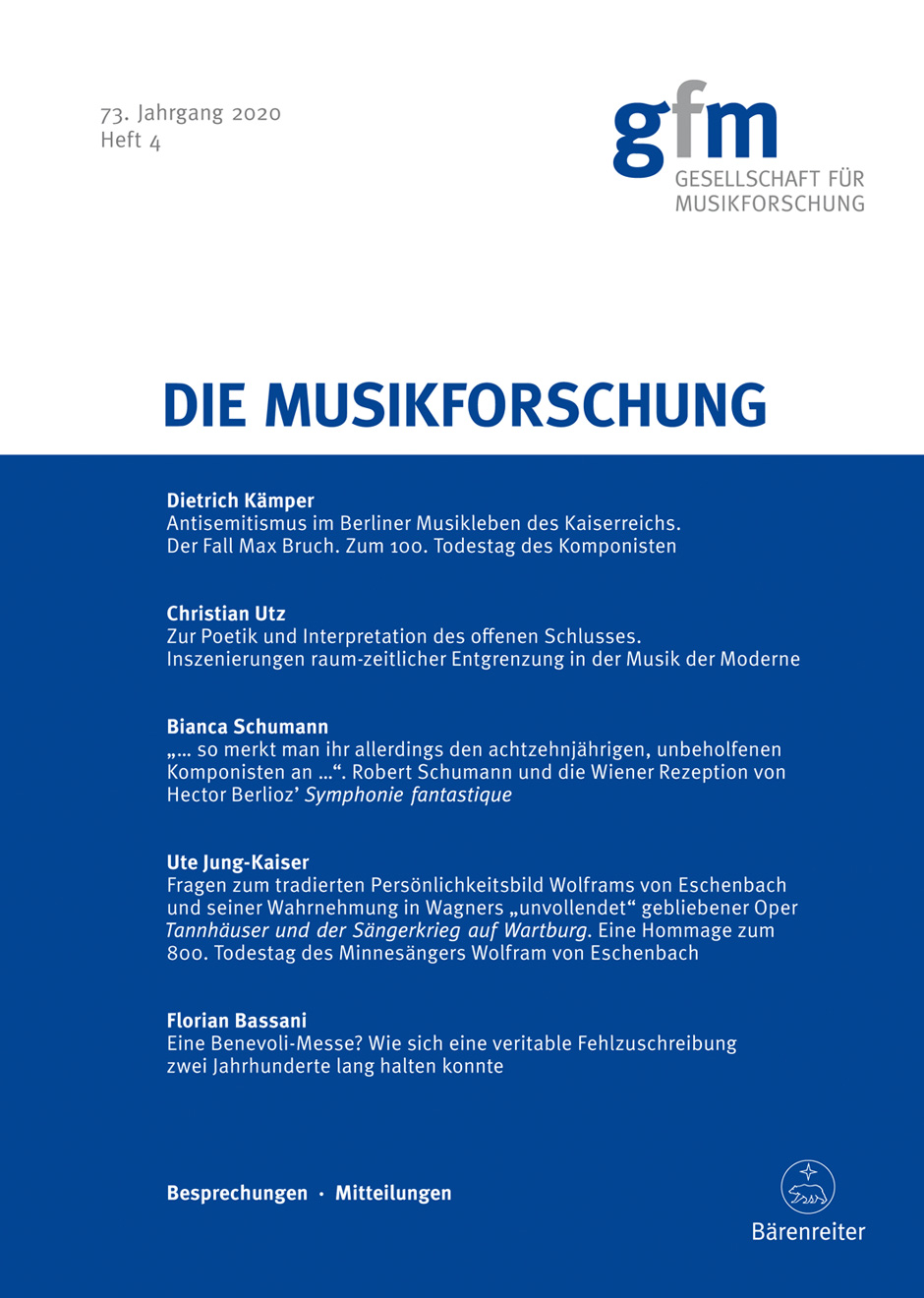Antisemitismus im Berliner Musikleben des Kaiserreichs
Der Fall Max Bruch. Zum 100. Todestag des Komponisten
DOI:
https://doi.org/10.52412/mf.2020.H4.2Abstract
Max Bruch was one of the most successful German composers of the 19th century. It was only towards the end of the century that his music increasingly lost of its appeal with audiences who turned toward more modern composers (Strauss, Mahler, Reger). Disappointed at the growing number of compositional failures, Bruch began to sympathize with anti-Semitic thought which had been spreading in Berlin since the 1870s. It seems particularly paradox that, in a letter written in 1902 to his publisher Simrock, Bruch attacked three Berlin musicians with brutal anti-Semitic invectives, who had been his best and most loyal friends for decades, and to whom he owed decisive contributions to his compositional career: Joseph Joachim, Friedrich Gernsheim and Siegfried Ochs. Although in this partivular case the anti-Jewish statements of the composer were triggered by dashed hopes for performances and publications, and although his bitter outburst was deeply rooted in his particular personality structure, Max Bruch can be regarded as the exemplary case of the "bourgeois" anti-Semitism of the imperial era.






